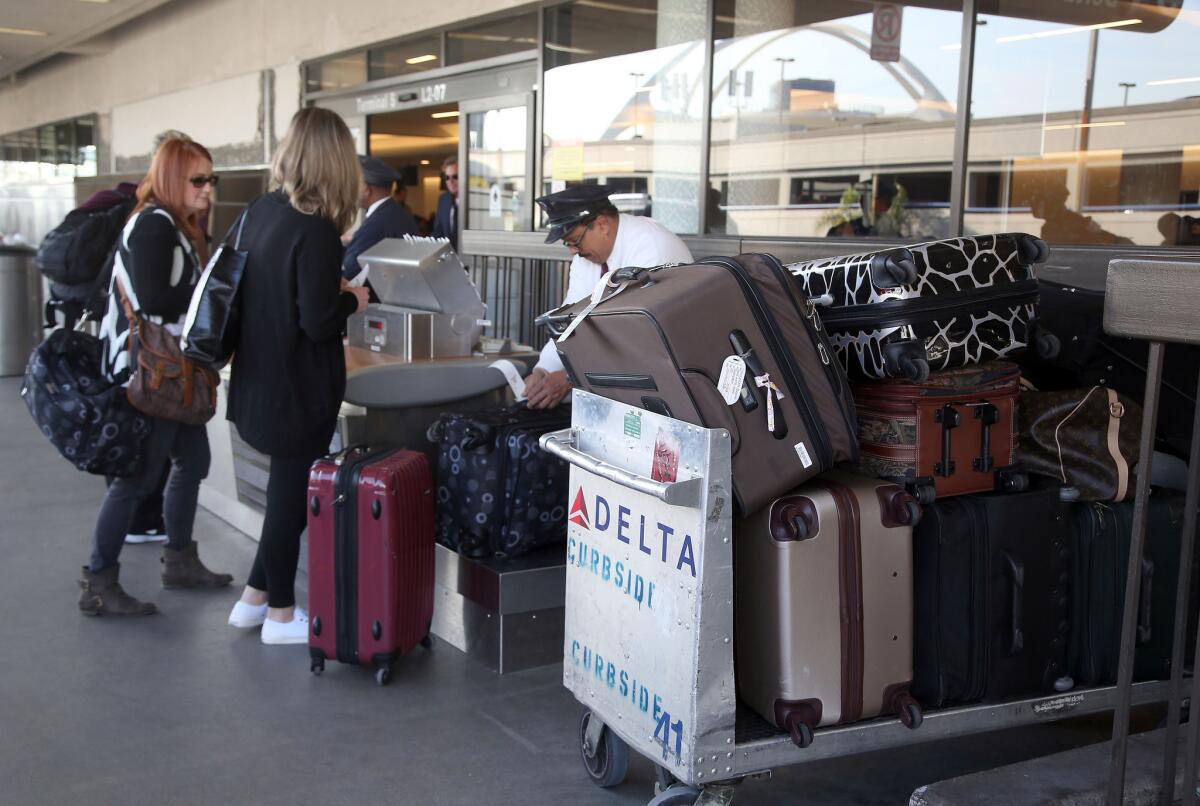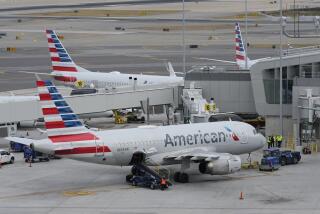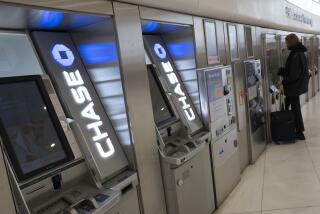Luggage can put heavy hit on your wallet

Lots of people still carry on their bags, but a heavy, big bag more than likely will need to go down below.
And that’s going to cost you.
The overweight and oversize fees are in addition to your checked-bag fees. If your bag is overweight and oversize, you could pay as much as $325 for one checked bag, by the time you add up a checked-bag fee and maximum charges for overweight and oversize bags.
The overweight fee, in many cases, is now $100 for a bag weighing 51 to 70 pounds on American, US Airways, Delta and United. You pay that rate whether the bag is 55 pounds or 69 pounds, so if you have a bag that’s only slightly heavier, unpack a few heavy items, such as shoes, or bring a second bag because it can be cheaper to check two bags within the limits than one overweight bag.
Oversize luggage can also be expensive. If your bag is over 62 linear inches (length, plus width, plus depth), you will have to pay $200 on American, Delta, United and US Airways. On most airlines, the maximum size of bag you can check is 80 linear inches.
The more you carry, of course, the more it’s going to cost you. A third checked bag will cost you $125 each way on Delta and $150 on American and US Airways. Bag four or higher will cost $200 each on those airlines. The third bag (or beyond) costs $75 each way on Alaska and Southwest and $125 each way on United.
If you need to bring a lot of luggage, you’ll want to book on select airlines that have lower fees, such as Virgin America, which charges $25 per bag, up to 10 bags.
Most airlines allow you to bring one free checked bag to Europe, South America or on transpacific flights. A second checked bag can cost $100 to Europe on most airlines.
The fees for a second checked bag to South America or transpacific destinations vary, with some being free and some costing up to $100.
If you are an active-duty military member, you may get a free checked-bag allowance, and it can extend to dependents who are traveling with you.
Check with each airline before booking to see which is the most wallet friendly.
Here’s a break you may get if you have an airline-branded card: If you book your ticket using that card, many airline affinity credit cards allow you to check one free bag, and that allowance can extend to traveling companions.
Southwest still allows you to check two bags free, so if they each weigh 50 pounds or less, Southwest wins hands down. Southwest does charge a $75 fee for overweight or oversize items, but it is cheaper than many of the fees on the legacy carriers — that is, airlines that have been around a while and haven’t tried to brand themselves as low-cost carriers (which Southwest has).
JetBlue, a low-cost airline, is the runner-up, allowing one checked bag free, but the second bag is $40. Overweight bags are $50 a bag for 51 to 70 pounds, and oversize bags are $75 per bag.
Spirit and Allegiant, which appeal to the leisure traveler, have a bag weight limit of 40 pounds; if your bag weighs more than that, you’ll have to pay an overweight fee. When flying on these airlines, you’ll need to read the fine print before you book.
Most airlines allow travelers to bring at least one personal item, including a purse, briefcase, laptop bag or small backpack.
There’s a good chance the airlines will become stricter about how many items you bring on board. Airlines may start counting a purse and a laptop bag as two items and ban one of those, so consider when you’re packing whether you can combine the two into one bag. If you run into the “only one” rule, you’re set; if you don’t, you’ll have less to wrangle.
More to Read
Sign up for The Wild
We’ll help you find the best places to hike, bike and run, as well as the perfect silent spots for meditation and yoga.
You may occasionally receive promotional content from the Los Angeles Times.






